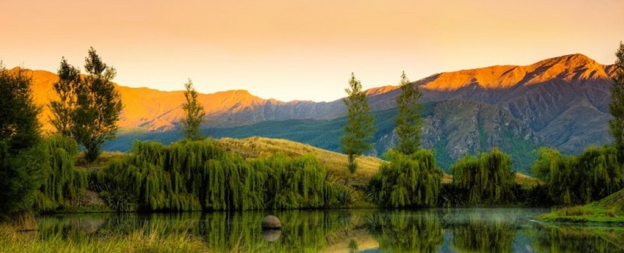Summary
How often do we stop and give thanks for God’s Creation? In our busy lives, we often forget to look around and take in the wonder of everything God has made, and give thanks to God for making it. King David encourages us in Psalm 8 to press pause on the daily grind, and give thanks to God for the world he has made for us to dwell in.
Psalm 8 gives praise to God for his majesty, reminds us of our comparative smallness, yet gives thanks to God that he has granted us dominion over the world he made.
Our passage explained
v1-3
The psalm begins in its first two verses by giving praise to God’s Majesty. God is addressed by his covenantal name, Yahweh, translated in English as “O LORD”, but also as “Our Lord”; God is not only the covenant-keeping God, but because of his covenant relationship is our God. God’s character (expressed by his name) is majestic “in all the earth”, that is, everywhere. All of Creation speaks praise to God.
To the believer, the majesty of God is reflected in the way the heavens proclaim his glory. While the world glorifies the powerful, “out of the mouth of babies and infants, you have established strength because of your foes, to still the enemy and the avenger” (v.2). God even uses the smallest and weakest to glorify himself, offering praise which quiets God’s enemies (see Matt. 21:16).
Compared to God’s majesty is humanity’s comparative smallness. In verse 3, David describes the heavens, the moon and the stars, as “the work of [God’s] fingers” (v.3), emphasising almost the limitless size of Creation and the power of God to make them.
v4-5
When we look at the magnitude, the unimaginably large size of Creation and its wonders, then look at ourselves, we are led to ask with David “what is man that you are mindful of him, and the son of man that you care for him?” (v.4). Compared to how big Creation is and how wonderful it is, what are we, as a race of beings and as individuals that God would care about us?
The answer to this question is described in verses five to eight, where our worth is described in terms of our dominion over Creation. Despite our smallness compared to the greatness of the moon and the stars, “you have made him a little lower than the heavenly beings and crowned him with glory and honor” (v.5). Our status is only a little lower than the angels, and we have royal status and honour given to us by God. As described in Genesis 1:26, we are made in God’s image and so in his image we reflect God’s reign by having a “vice-regent” status.
v6-9
This royal status and honour results in us holding a “governorship” role for God. God has given us “dominion over the works of your [God’s] hands” and David says that God has “put all things under his [Man’s] feet” (v.6). Dominion and “put…under his feet” describe a relationship of governance and guardianship, both rule and protection. This governorship is described in verses seven and eight as extending over all the animals (sheep, oxen, beasts of the field, birds, and fish) that God made to dwell on earth.
Because God has made all things wonderfully, and given us the honour of governing his Creation for him, the psalm closes by repeating the praise given to God in verse one. “ O LORD, our Lord, how majestic is your name in all the earth!” (v.9).
Our passage applied
This psalm reminds us of the importance of humanity to God as part of Creation. The influence of secular ideas taught today has reduced the way we see ourselves to “just another animal.”
A care for animals and the world is a good, commendable thing. We have been given dominion over Creation, and so part of the dominion is wise guardianship of its resources and care over everything in it.
But we are not just another animal; we are made in God’s image. Every person has an essential dignity and honour, which is a reflection of God’s majesty and honour. We must not only care for Creation, but treat other people with the respect we would pay the Queen or a member of the Royal Family. That extends to all human beings, including the unborn and the elderly.
Yet we must also acknowledge that our sinfulness affects the way we treat each other and the good Creation which God has made. Thankfully, the words of verses six to eight find their truest fulfillment in Jesus, the very image of the invisible God (Col. 1:15, Heb. 2:6-8). In his resurrection, Jesus truly has all things put under his feet (Eph. 1:22, 1 Cor. 15:27), and will remake Creation when he returns.
For the goodness of God’s Creation and the place of honour he has given us, we should give thanks to God and acknowledge his majesty and honour over everything.
Resources
Questions? Please contact us. Inspired? Come and worship with us on Sundays.


